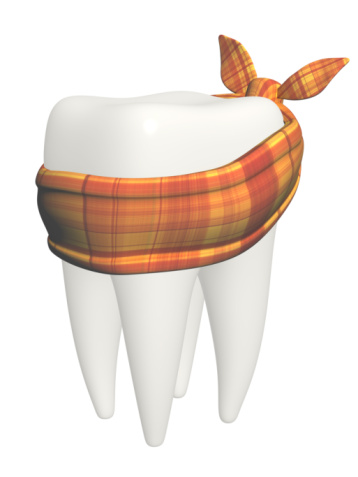 Chances are, you have experienced the discomfort of sensitive teeth. Sensitivity in the mouth can be a sign of other underlying issues. Teeth feature three primary layers: the protective outer enamel, the sensitive dentin, and at the core, a canal that houses nerves and connective tissue. Enamel is the hardest tissue in the body and the second hardest naturally occurring substance on our planet. Dentin is a softer tissue that features tiny tubules, or channels, that allow sensations of pressure and temperature to be conducted to the tooth’s nerve. The nerves that lie within the inner canal then send signals to the brain.
Chances are, you have experienced the discomfort of sensitive teeth. Sensitivity in the mouth can be a sign of other underlying issues. Teeth feature three primary layers: the protective outer enamel, the sensitive dentin, and at the core, a canal that houses nerves and connective tissue. Enamel is the hardest tissue in the body and the second hardest naturally occurring substance on our planet. Dentin is a softer tissue that features tiny tubules, or channels, that allow sensations of pressure and temperature to be conducted to the tooth’s nerve. The nerves that lie within the inner canal then send signals to the brain.
Thin Enamel
Acid erosion and tooth wear can thin the protective enamel on the outside of teeth. Thin enamel provides less insulation, making teeth more sensitive to temperature fluctuations and pressure. Erosion is most often caused by acid in foods or from stomach acid. Enamel wear most often results from grinding and clenching teeth, a condition called bruxism.
Exposed Dentin
The crowns of teeth are covered with enamel, but the roots are not. If the gums recede, roots become exposed. The slightest pressure, such as that from wind, can cause intense pain to exposed teeth roots. Temperature fluctuations will also cause discomfort. Gums can recede for a number of reasons, including gum disease, grinding, or aging. (more…)

